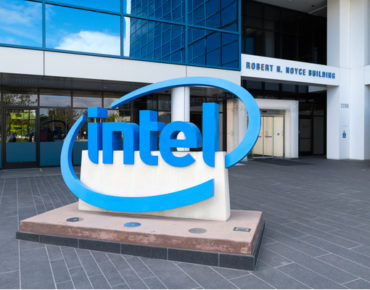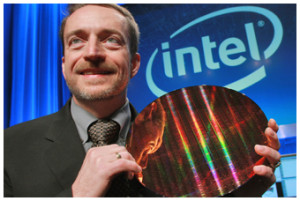Intel Veteran Pat Gelsinger Is Leaving VMware, Returning to Intel as CEO

The Intel board of directors has appointed a new CEO. Intel alum Pat Gelsinger is leaving his post as CEO of VMware to rejoin the company that he parted ways with 11 years ago. Gelsinger will succeed Bob Swan, who will remain CEO until Feb. 15, Intel announced yesterday (Jan 13).
Gelsinger previously spent 30 years at Intel, starting at age 18 as a quality-control technician and rising through the ranks to become the company’s first chief technology officer. After reportedly being denied a path to CEO at Intel, Gelsinger went to EMC (now part of Dell) in 2009.
“It’s the biggest return of a prodigal son since Steve Jobs went back to Apple,” remarked Nathan Brookwood, an analyst at Insight64.
In a strongly worded letter to Intel Chairman Omar Ishrak dated Dec. 29, Third Point CEO Daniel Loeb summarized the company’s challenges:The CEO shakeup comes two weeks after activist hedge fund Third Point urged Intel’s board to explore “strategic alternatives” in light of manufacturing setbacks that have plagued the company and resulted in a two-to-three year lag in process leadership.
“Once the gold standard for innovative microprocessor manufacturing, Intel has lost its pole position to TSMC in Taiwan and Samsung in South Korea,” he wrote, in part. “Previously reliably able to progress its process technology every 2-3 years, Intel has been stuck at its 14-nanometer node since 2013, while TSMC and Samsung both transitioned to 5-nanometer this year and are developing more advanced process geometries. Intel’s plan to roll out its 7-nanometer node late 2022 or early 2023 will place the Company several years behind its Asian peers for at least the first half of this decade. This lag in advanced semiconductor manufacturing is a vulnerability that must be corrected.”
The leadership change has been positively received by investors and analysts who have praised Gelsinger’s experience and track record.
“He is a ‘perfect storm’ CEO for Intel,” Robert Enderle, principal analyst at the Enderle Group, told MarketWatch. “He has enough knowledge of Intel and of what makes it successful and what Intel needs right now, because of his experience at EMC/VMware.”
In addition to his successful three-decade tenure at Intel where he was mentored “at the feet of Grove, Noyce and Moore,” Gelsinger has led VMware since 2012, doubling the size of the company during that time. His business acumen is matched by his technical bonafides: Gelsinger holds associate’s, bachelor’s and master’s degrees in electrical engineering and was the architect of the original Intel 80486 processor, also known as the 486.
In a letter to Intel employees, Gelsinger said he was “thrilled and humbled to be returning to Intel as CEO.”
Hinting at a more detailed vision to come, he called out Intel’s transition from a CPU company to a multi-architecture XPU company. The emerging XPU strategy intends to address functionalities across a growing portfolio of end point devices (CPUs, FPGAs, GPUs, specialized DNN accelerators, etc.). The future of computing is heterogenous and dominating here will no doubt be critical to Intel’s success.
HPC analysts we spoke to see Gelsinger’s appointment as a smart move for Intel, which despite setbacks and increased competition, still maintains a 90 percent market share for CPUs.
“Intel’s operational issues in recent years have opened up the company to strong competition from AMD and Nvidia, particularly in HPC, and we’ve even seen movement on Arm and other processing elements,” said HPC market watcher Addison Snell, CEO of Intersect360 Research. “But despite all that, Intel is still the dominant provider of CPUs today, and they’ve established a strong persistent storage position with Optane, with a potentially strong roadmap coming, including Xe GPUs. Intel’s struggles have had more to do with execution than strategy, and Gelsinger, with his engineering background, could be the right fit to turn that around.”
HPC market analyst Steve Conway, senior advisor at Hyperion Research, said Intel needs to transition toward a business model that gets them return on the investments in their fabs while at the same time addressing a more competitive market.
“Intel’s business model has been to build these very expensive fabs and then try to keep them busy with business. That internal focus works fine if you have no competition,” said Conway, “but when you have the competition coming from fabless companies who don’t need to make these investments, you have to start turning the company toward the marketplace more. The question is not so much what’s going to happen because what’s going to happen is more outsourcing. The focus now is the pace and the scope of the transition and Gelsinger has the experience to get his arms around that problem.
“As Intel sharpens its market focus, Gelsinger is somebody who will have internal credibility, because he has a very strong technology background — most of it at Intel — so he’s going to be acceptable. He’s not going to be seen as a suit and that’s very good, but he also has strong business experience,” said Conway. “He brings a great combination to the company right now. I don’t know if they could find a better candidate.”
Gelsinger’s technical credentials stand in contrast to those of CFO-turned-CEO Swan, the financial expert who stepped into the leadership role after the forced resignation of former CEO Brian Krzanich in June 2018. Swan was formally installed in January 2019 after holding the interim title for seven months. Initially credited with improving operations (and to some extent morale), Swan was ultimately unable to turn Intel around.
Maribel Lopez, principal of Lopez Research, is sympathetic to Swan’s position. “Everybody was pig-piling on Intel this week and how terrible Bob Swan’s reign had been, but I feel for the guy,” she told HPCwire. “He’s only been there two years, and a lot of the issues were not created on his watch. He actually did a lot of good to try to fix some of the things that were wrong, but this is a complicated market.”
VMware has begun the search for a new CEO. Michael Dell, CEO of Dell Technologies (which has a majority stake in VMware), wished Gelsinger well in his new role and stated that Gelsinger will remain on VMware’s board of directors after the transition.
Intel stock, which had rallied earlier this the week on news of the 10nm Ice Lake production ramp and the release of other processor families, surged in the wake of the CEO switch, ending the day (Jan. 13) up 7 percent. VMware shares slumped by roughly the same amount.
Related
With over a decade’s experience covering the HPC space, Tiffany Trader is one of the preeminent voices reporting on advanced scale computing today.












